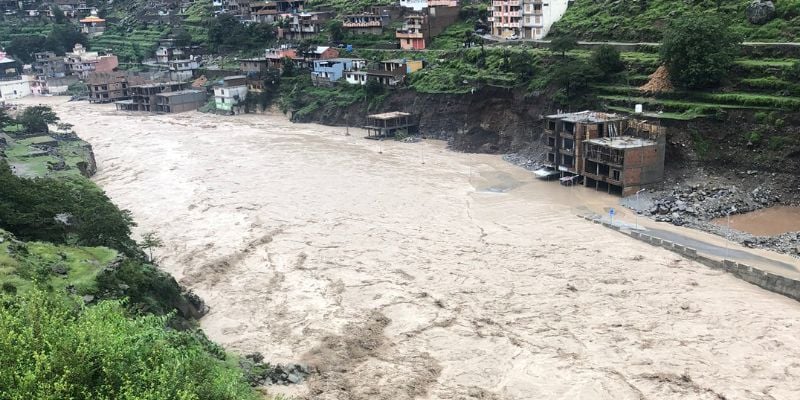Four disasters in 30 years: Who will save Swat?
Since 1995, Swat has been the victim of one disaster after another
Swat is beautiful. But it is also tragic.
Since 1995, it has been the victim of one disaster after another. In the 90s, Sufi Muhammad’s extremist organization, the Tehreek-e-Nafaz-e-Shariat-e-Mohammadi, devastated the valley’s economy, peace and infrastructure. For several years thereafter, Swat’s stunning green meadows remained a victim of the man-made disaster till early 2010, when a decisive military offensive sent the Taliban packing.
Then, just when the valley was recovering from the wounds inflicted by the insurgency, floods ravaged Swat in 2010, changing its very landscape. The upper part of the valley, Tehsil Bahrain, was left in complete ruins.
A third disaster struck in September 2020, again in the form of floods. Now, it is the year 2022, and heavy rains have triggered flash floods in large parts of the country, including beautiful Swat.
These ravenous floods, the likes of which Pakistan has not seen before, have torn through roads, bridges, homes and shops in the valley. People in upper Swat are currently cut off from the rest of the country.
Four disasters in 30 years in Swat, but has the government learnt any lessons? Among these four tragedies, two were man-made and two were inflicted by nature.
But before the floods even hit, Swat was already in the news this year, as suddenly and without any explanation, militants and armed men began reappearing in the valley of Matta. Troublingly, for quite some time, the federal and provincial governments remained mummed on the issue.

When the local people asked the authorities for answers, police complaints were lodged against them. It seems that the bloodshed and terror caused by militants has taught our state no lessons. Neither have they learnt anything from natural calamities.
In July 2010, there was a huge deployment of military forces in Swat, when the floods struck. Back then hundreds of international nongovernmental organizations arrived in the valley for relief and rehabilitation. But by 2016 the government, at the behest of the real power wielders, gradually and steadily tried to muzzle international organizations using the pretext of security concerns.
New rules and regulations were made in order to discourage international and local organizations from working in the country. The government is now again appealing to the international world and these very NGOs to help it recover from devastating floods.
While it is true that the human catastrophe was caused by an unprecedented downpour, there was still much that the provincial and federal government could have done to mitigate the impact.
In the last several years, while tourism has been promoted in Swat, there has been no regard for the environment and nature of the valley. The increased influx in the valley led to the emergence of new hotels on the riverside without any government oversight and environmental assessment reports.
Tourists were pouring into Madyan, Bahrain and Kalam and visiting Mahodand and Kumrat. But there were no proper regulations for something as basic as garbage disposal.
In 2014 though, the Khyber Pakhtunkhwa government passed the River Protection Act, to protect the Swat River. But the intention behind the act became clear when people's private homes were demolished but commercial properties, built after 2015, remained untouched, in violation of the law.
One wonders how and why the newly built Bahrain-Kalam Road was not considered an encroachment, when a large part of the road has been built on the riverbed.
Moreover, when the Daral Khwar Hydropower Project was being constructed, the authorities assured the local people that it would help in reducing the danger of floods in the Daral River. But the area is inundated today, proving authorities wrong.
Entire areas in Swat are flooded. No roads exist and no bridges connect villages anymore.
Will our politician put aside their politics to work for those suffering? The people of the country need you now more than ever.